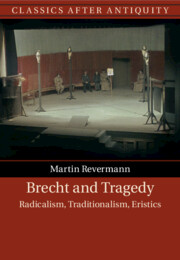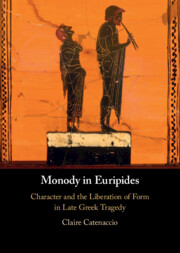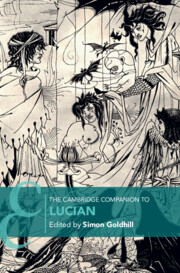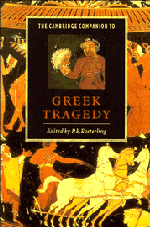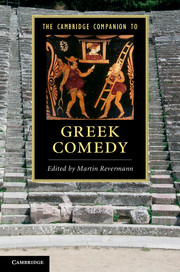Brecht and Tragedy
This wide-ranging, detailed and engaging study of Brecht's complex relationship with Greek tragedy and tragic tradition argues that this is fundamental for understanding his radicalism. Featuring an extensive discussion of The Antigone of Sophocles (1948) and further related works (the Antigone model book and the Small Organon for the Theatre), this monograph includes the first-ever publication of the complete set of colour photographs taken by Ruth Berlau. This is complemented by comparatist explorations of many of Brecht's own plays as his experiments with tragedy conceptualized as the 'big form'. The significance for Brecht of the Greek tragic tradition is positioned in relation to other formative influences on his work (Asian theatre, Naturalism, comedy, Schiller and Shakespeare). Brecht emerges as a theatre artist of enormous range and creativity, who has succeeded in re-shaping and re-energizing tragedy and has carved paths for its continued artistic and political relevance.
- Fundamental re-assessment of Brecht's complex relationship with Greek tragedy and the tragic tradition, emphasizing its importance for understanding his innovative and radical theatre art
- Significant archival material is made available for the first time
- First ever complete publication of Ruth Berlau's colour photographs from Brecht's 1948 production of Sophocles' Antigone
Reviews & endorsements
‘This is a book that should have been written long ago but it is really only someone like Revermann, with equal grasp of Greek tragedy, tragedy as a diachronic form (rather than a mode), and a deep knowledge of the history of modern European performance traditions, who could write it.’ Fiona Macintosh, Director of The Archive of Performances of Greek and Roman Drama (APGRD), University of Oxford
‘Martin Revermann’s new book on Brecht deserves a place of honor at the very center of contemporary studies of twentieth-century German drama and more widely of twentieth-century European literature as a whole. It is extraordinary how fundamentally Revermann has been able to enrich and transform our understanding of Brecht, in part by discovering and fruitfully interpreting so much new material. I do not doubt that this book will turn out to be as much a milestone in Brecht studies as Revermann’s work on Greek drama has been in that field.’ Glenn W. Most, Professor of Greek Philology, Scuola Normale Superiore, Pisa
‘… a valuable, erudite, and inspiring study of Brecht and tragedy.' Silvija Jestrovic, European Association for the study of theatre and performance
Product details
December 2021Hardback
9781108489683
492 pages
251 × 176 × 33 mm
1.02kg
36 b/w illus. 4 colour illus.
Available
Table of Contents
- Introduction: Radicalism, traditionalism, eristics
- Part I. Point of contact 1948:
- 1. 1948 – A year of krisis
- 2. Professing non-Aristotelianism: Brecht's Small Organon for the Theatre (1948)
- 3. Utilizing Greek tragedy: Brecht's The Antigone of Sophocles (1948)
- 4. The making of a model: Antigonemodell 1948
- Part II. Positionings:
- 5. The other Other: Brecht's Asia
- 6. Naturalism and related diseases
- 7. Schiller: rival and inspiration
- 8. Comedy and the comic
- 9. Shakespeare and the road beyond tragedy
- Part III. Comparatist explorations:
- 10. The tragedy of Mother Courage
- 11. Brechtian chorality
- 12. Threepenny Opera: the view from below
- 13. Appellative anti-tragedy: gods, parody and closure in The Good Person of Sezuan
- 14. Mahagonny: rise and fall of a dystopian city
- 15. Anti-tragic justice: The Measure
- 16. Heroism and its discontents I: the epic tragedy The Judith of Shimoda – expansion, commentary, metapoetics
- 17. Heroism and its discontents II: Galileo, a tragic hero of science?
- Conclusion: Brecht and tragedy – pulling threads together.

